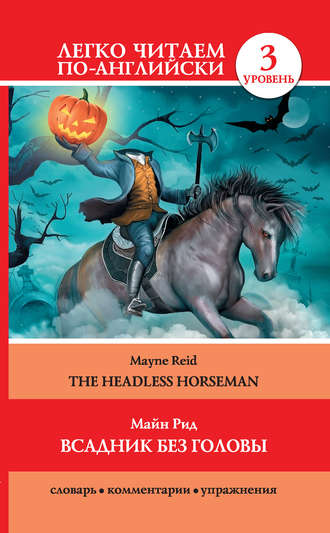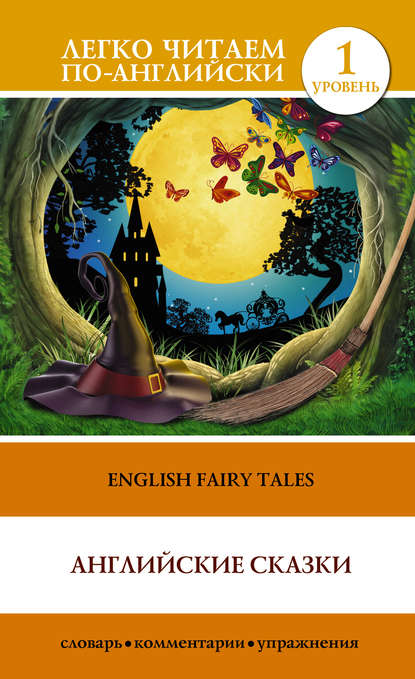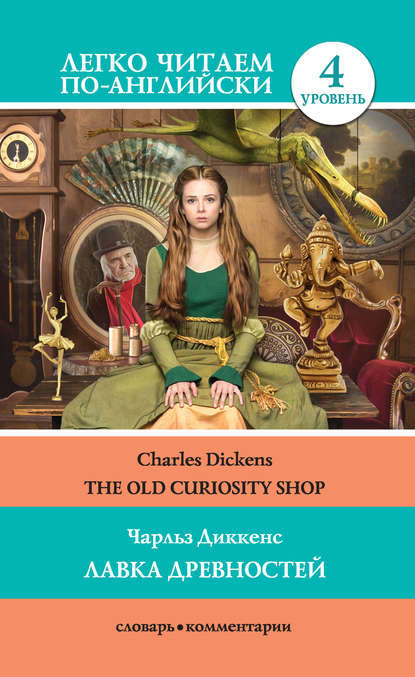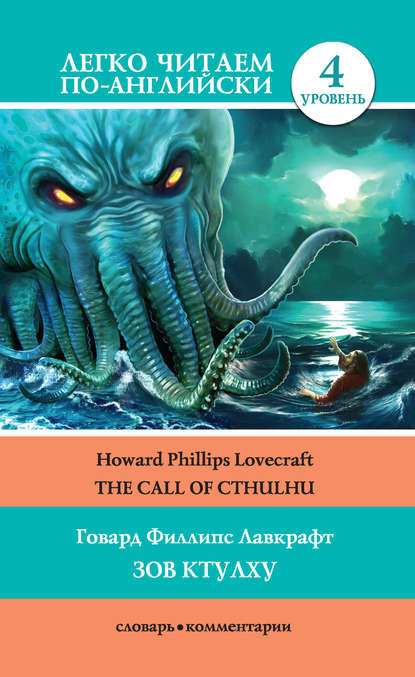
Полная версия
Всадник без головы / The Headless Horseman
The structure was in shadow, a little retired among the trees; as if the site had been chosen with a view to concealment. It could have been seen but by one passing along the bank of the stream; and then only with the observer directly in front of it. Its rude style of architecture, and russet hue, contributed still further to its inconspicuousness.
The house was a mere cabin – with only a single aperture, the door – if we except the flue of a chimney. The doorway had a door, a light framework of wood, with a horse-skin stretched over it.
In the rear was an open shed, around this was a small enclosure.
A still more extensive enclosure, extended rearward from the cabin, terminating against the bluff. Its turf tracked and torn by numerous hoof-prints told of its use: a “corral”[15] for wild horses – mustangs.
The interior of the hut was not without some show of neatness and comfort. The sheeting of mustang-skins covered the walls. The furniture consisted of a bed, a couple of stools and a rude table. Something like a second sleeping place appeared in a remote corner.
What was least to be expected in such a place, was a shelf containing about a score of books, with pens, ink, and also a newspaper lying upon the table.
Further proofs of civilization presented themselves in the shape of a large leathern portmanteau, a double-barrelled gun, a drinking cup, a hunter’s horn, and a dog-call.
Конец ознакомительного фрагмента.
Текст предоставлен ООО «Литрес».
Прочитайте эту книгу целиком, купив полную легальную версию на Литрес.
Безопасно оплатить книгу можно банковской картой Visa, MasterCard, Maestro, со счета мобильного телефона, с платежного терминала, в салоне МТС или Связной, через PayPal, WebMoney, Яндекс.Деньги, QIWI Кошелек, бонусными картами или другим удобным Вам способом.
Примечания
1
train – обоз
2
carriole – легкий крытый экипаж
3
the ten of spades – пиковая десятка
4
half-score – десять
5
blood-bay – гнедой
6
rancher – хозяин ранчо
7
a man of heroic mould – герой девичьих грез
8
creole – креолка (потомок выходцев из Франции, Испании или Португалии, рожденный в одном из бывших владений этих стран в Америке)
9
cypress – кипарис
10
pink of perfection – верх совершенства
11
norther – сильный северный ветер
12
Cimmerian darkness – непроглядный мрак
13
mustanger – охотник за дикими лошадьми (мустангами)
14
Satan himself, astride a Tartarean steed – сам сатана верхом на адском коне
15
corral – загон для скота












